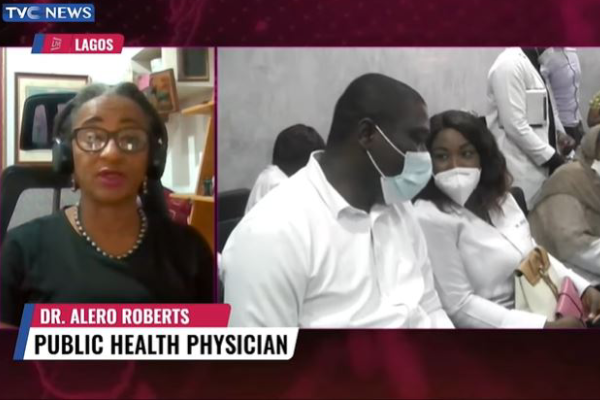In a bid to address the effect of brain drain in the health sector, the federal government is making moves to engage Nigerian doctors and nurses abroad.
Minister of Health, Osagie Ohanire, who disclosed this to Newsmen in Abuja, stated that the aim is to connect the doctors abroad who have acquired more skills to teaching hospitals across Nigeria so they can transfer knowledge.
The minister says this way the country will gradually convert the brain drain to brain gain.

According to Dr. Ehanire, the doctors abroad will hold online lectures with doctors and nurses in the teaching hospitals in Nigeria, and that those who have to do surgery or see a patient in person can book periods during which they will come home with cutting edge knowledge and skills.
The minister added that government is working on improving the condition of services of medical personnel in the country.
Speaking on this, Dr Alero Roberts, Immediate past VIce Chairman, Association of Public Health Physicians, Lagos Chapter said she’s
reluctant to call it a big gain until we see what comes out of it but added that this is probably the most effective which we can take at this time, since that we certainly can leverage on the technology that is available.
She noted that one of the most significant losses in brain drain has been medical education, as there simply aren’t enough doctors, nurses, therapists, pharmacies, medical lab engineers, and medical lab scientists to train the next generation, and they are certainly needed to be trained to that minimum standard, which is an international science.
Comparing brain drain in other countries, Dr Roberts further said Nigeria’s situation will certainly continue to be peculiar to us but noted that there is also movement of talent from some areas to other areas.
“The gaps that have been created for instance, with the UK health sector, because a lot of UK health workers left the health service, some to greener pastures abroad, a lot of them moved to Canada, to Australia, and some just left the service altogether and decide to retire or resign and stay with their welfare packages, which is what created the gaps that our healthcare workers are now moving into”.
Speaking further, she said the reality of what is currently going on the medical field is better experienced than painting a picture of it.
Dr Roberts said the medical personnel left are both delivering service and teaching and trying to carry out research at the same time, adding that quality is definitely suffering.
Speaking of her biggest concerns in this sector, Dr Roberts stated that training is a major issue which is supposed to be continuous.
“We need for the training to continue, no medical personnel was able to graduate as a result of the 2022 ASUU strike.
“Nobody graduated in the health sector. So already we have that gap that has been created.
“We have very poor training facility and a very poor training culture. We have the numbers, but we certainly don’t have the skills.
She believes that if the federal government can send Nigerians abroad to teach us in international level skills, not just physicians and nurses, it will be a step in the right way.
On how to improve Nigeria’s healthcare system, Dr. Roberts stated that every functional health facility requires materials, money, and manpower, as without manpower, you can upgrade anything you want to upgrade, build any number of health opportunities you want to build, but you will not get the service delivery that the average Nigerian requires.
Dr Roberts recalled that in 2007, there was a brilliant paper that was written on the human resources for health in Nigeria did not see the light of day.
She added that the issue of manpower has only grown worse over the last decade
” So we have to critically address that issue of manpower and use every means. If we make our situation, our country as attractive as others have made it, we will reverse the brain drain” Dr Roberts stated.





